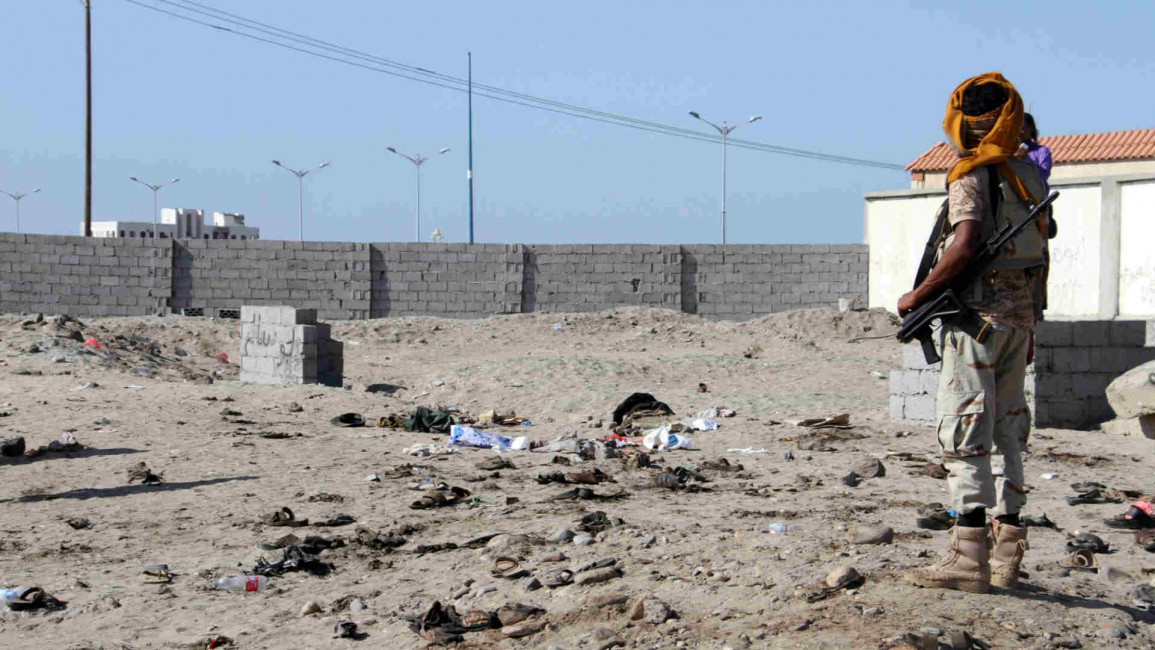Arab League 'disturbed' by secessionist developments in Yemen's Aden
On Thursday, the former governor of the southern city of Aden, Aidaroos al-Zubaidi, announced the formation of the "Southern Transitional Council", a matter of weeks after he was controversially dismissed by President Abedrabbo Mansour Hadi earlier this month.
In a statement on Saturday Arab League Secretary General Ahmed Abul-Gheit expressed concern that the development could prolong conflict in the war-torn country, calling on all Yemenis to "pursue solidarity and unity in this hard moment to spare the country the risks of division."
"Opening up a new front leads to create more divisions and prolong the conflict in the country," he warned.
The formation of the Southern Transitional Council by al-Zubaidi, and new "vice president" Hani Bek Brik, also a former government minister, has also been criticised by the Hadi government, which has refused to recognise it.
Figures in the Gulf Cooperation Council too have expressed opposition.
Forces loyal to Hadi, backed by a Saudi-led coalition of Arab states conducting airstrikes in the country, are currently battling the Iran-backed Houthis in Yemen's ongoing civil conflict.
Hadi was forced to leave Sanaa in 2011 after Houthi forces who are aligned with former President Ali Abdullah Saleh took control of the city.
Al-Zubaidi and Ben Brik are known to have close ties to the leadership of the UAE, and have expressed a willingness to continue working with the Saudi-led coalition.
Both are reported to have flown to Riyadh on Friday.
Although talks in the Saudi capital were confidential Yemeni political sources told The New Arab that Riyadh viewed the formation of an independent transitional council as a blow to the legitimacy of the Hadi government and was concerned by the development.
Despite Yemen's unification in 1990, secessionists in the south have continued to feel marginalised by power brokers in Sana'a, repeatedly calling for independence from the north.
Although Hadi hails from the south himself, he worked as vice president for 18 years under former President Saleh and is thus seen by some southern factions as a product of the international community and a puppet in the hands of the Saudis.
The prospect of a new secession could complicate the war waged by the Saudi-led coalition against the Houthi rebels, who remain in control of the capital Sana'a and swathes of north and west Yemen.
The development could lead to the existence of three entities claiming legitimacy over Yemen - Hadi's in Riyadh, the Houthi-Saleh alliance in Sana'a, in addition to the newly formed council claiming to represent the south, with ties to the UAE.
More than 10,000 people have been killed in Yemen's ongoing war, which has also pushed the country to the brink of famine.


![President Pezeshkian has denounced Israel's attacks on Lebanon [Getty]](/sites/default/files/styles/image_684x385/public/2173482924.jpeg?h=a5f2f23a&itok=q3evVtko)



 Follow the Middle East's top stories in English at The New Arab on Google News
Follow the Middle East's top stories in English at The New Arab on Google News


